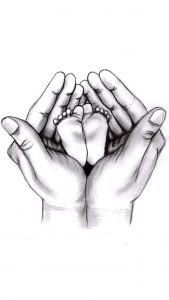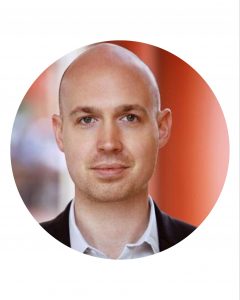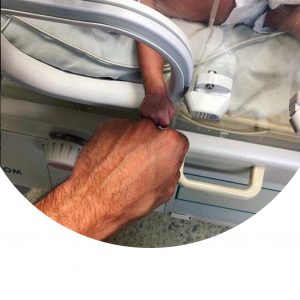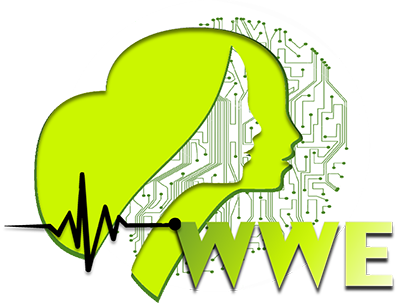29 Mar “Ignis Aurum Probat”. Phil Martie e Nicolette: Neonatal Intensive Care device.
On this forth appointment of the newspaper column “La Salute tra oggi e domani” we are glad to host Manuela Appendino’s (founder of WWE) column “Tech&Child”.
Together we’re going to talk about a device through which we’re dealing with the two main topics of these columns, respectively Technology for Health/Human Factor and Technology for Children.
A device with a story that struck us deep inside our hearts.
We’re talking about Nicolette and her app NicoBoard.
♣”With NicoBoard, we believe we are creating a category,” he says. “It could be called patient empowerment. In the future, we think all providers will subscribe to empowerment technology and services that they pass on to their patients. It will be just as normal as having phones. We are at the very beginning of that now.”
◊ With these words Phil Martie describes his “creature” Nicolette, in an article of Entrepreneur.
From the moment I got to know the history of this device, I thought of the famous Latin proverb “Ignis Aurum Probat”, hence the title of the article. Yes, because it is a tangible example of a person who has given his best in adversity.
 In 2015, Phil Martie and his wife Jude Alcantara Martie are waiting for a beautiful couple of twins, Nicolette and Bexley. Unfortunately, they were born 15 weeks early, bringing from the beginning a series of critical issues in their case history.
In 2015, Phil Martie and his wife Jude Alcantara Martie are waiting for a beautiful couple of twins, Nicolette and Bexley. Unfortunately, they were born 15 weeks early, bringing from the beginning a series of critical issues in their case history.
Thus, it begins the hospital stay in the Neonatal Intensive Care Unit (NICU), but after 27 days Nicolette’s death comes.
Instead, her little brother Bexley gets home with his parents after 110 days spent in NICU.
Beyond the unspeakable pain for Nicolette’s loss, to which I prefer to spend just a deep and respectful silence, the experience in NICU hits deeply Phil.
The feeling of being helpless, unable to do right anything for his creatures, completely ignorant of the treatment process set for Nicolette and Bexley, all of this creates in Phil such a malaise that will bring him to the creation, in less than a year, of the advice Niette.
Can such a big pain take shape in an idea? Yes, it can.
Phil thinks that the feeling of powerlessness for a parent forced to face an experience in NICU should be undone. Hence the idea of realizing a technology that allows parents of NICU children to take part of the treatment process, to interact in the most useful way with the medical staff and to live better such a difficult experience.
Phil wants every parent without being a doctor, a statician, to understand the effective health state of his child and even to see him through photos or videos.
• Indeed, it shouldn’t be underrated the sickness due to the physical distance from his baby and to the fact he can see him only few hours a day.
Here NicoBoard arises.
◊ It is the Nicolette’s app that extrapolates the EHR (Electronic Health Record) Data and it shows them to the user with an absolutely intuitive graphic interface. The aim is basically to make parents aware of the health state of their babies and to let them face the complex situation to the best.
And what better way than to keep them informed and to promote consciousness of the clinical status of their child? In fact, “the unknown is scary”. Therefore, it is critical for parents’ welfare to encourage the actual comprehension of the journey that their child is taking towards the healing.
This is a very praiseworthy way to optimize a treatment process, which is no longer seen as a pure set of activities, more or less interconnected, finalized to the supply of a given health provision; now, it is seen as a set of activities and of people, leading in the process itself, finalized to the physical and psychical welfare of the patient (new born or adult), and of all these people standing nearby.
This change of paradigm is, concerning my opinion, crucial because it is exactly what defines a technology to health support. A technology that doesn’t have the prerogative to erase human value, but to assist it. And this is the technology I and we like.
Here, therefore, we talked to Phil Martie with huge esteem. A man that transformed his own pain and his tragic experience in help for so many parents that have to face the same experience.
There were so many topics we wanted to face together with Phil that we decided to split the interview into two parts.
Following, there is the first part we’re leaving you to, so we don’t steal any more time from Phil’s beautiful words.

♦ Could you describe us how a such devastating loss has led to a product idea?
It was not so much the loss of my daughter, but the NICU experience as a whole that made this idea so compelling. The truth is that as a parent in the NICU, there are no tools provided by the hospital to help understand and track the baby’s data, understand the numerous medical conditions, or learn ways to better participate in their care. It is not something I would have ever thought of before, but once I experienced the NICU journey myself, it was quite obvious to me this was a very compelling need.
♦ Standing your idea, how did you choose your Team members?
Our team came together rather quickly and smoothly because I worked with all of them closely in very meaningful ways prior to founding the company. This is ideal because we didn’t have to spend much time figuring out how to work with each other; we all came in with good chemistry. In the case of our Chief Medical Office, Dr. Michel Mikhael, he was my son’s lead neonatologist throughout his NICU journey, and during that time Michel and I had many conversations about how technology could be applied to the NICU for families. It was very easy to come back and ask him to join when the company was launched. I had no one else in mind.
♦ What kind of Analysis did you and your Team conduct to be enough sure of the efficacy and efficiency of your product in healthcare?
The process was, and continues to be, iterative. We started with a vision based on my experience: a mobile application in the hands of parents that let them view their baby’s data and quickly access quality medical research. From there we had to know that this was a need across a broader audience; just because I thought it was a good idea doesn’t necessarily mean other parents would actually use it. We also needed to understand how impactful a tool like this would be; is it just nice to have or would it actually improve health outcomes for baby’s and have positive financial impacts for hospitals, insurance companies, and families? Lastly, we needed to understand how scalable the tool is; could it apply to other health battles?
The research on outcomes and scalability came back very strong; we found that families who were more educated and engaged had much better health and financial outcomes. We also found that this applied to many health concerns, from cancer to diabetes and everything in between. At that point, we built a prototype and tested it on former NICU parents, and the response was very positive; almost all of them indicated they would have used NicoBoard frequently during their NICU stay to be better informed, make better decisions, and participate more in their baby’s care.
♦ What your suggestions to a team who would like to create a start up? What the fundamental steps that lead an idea to a commercialized product?
At Nicolette, we are all first-time startup founders, and we are still learning so much ourselves. My best advice is to start something that is very specific and meaningful to you, where you have a strong vision for the impact the product will have. You are going to need to have strong conviction because there are many challenges along the way, especially in healthcare. These include finding funding, developing a commercialization plan, and building great technology.
You will be the one with the strongest vision and there will be people who have other suggestions and ideas along the way that will try and distract you. You will suffer defeats, especially when it comes to raising capital. No matter what, you must stick to your product vision and value.
♦ Is it hard to materially realize an idea in America? What the differences between American and Europian situation?
Yes, it’s hard! First of all, it requires focus to turn an idea into reality. Most founders, as in my case, have to quit their jobs and focus full-time; this causes personal hardship and sacrifice. This is especially the case when you have a family.
All the research, development, fundraising, selling and operations require lots of discipline and humility. Building technology is never a straightforward path; there are many unexpected challenges to overcome to get to a finished product. Even then, the work is never done; once a version is rolled out, it’s time to make it better.
I know the European healthcare landscape is different than the US, especially when it comes to payment, but I am by no means an expert. What I can say for sure is that empowering patients and families to take control of their own healthcare decisions is a universal need for humans, no matter where they live. Thus, we believe that in 10 years, it will be normal for doctors to provide data and education technology to their patients as a normal part of healthcare services.
∼
◊ A project long 9 months. A project made of imagination, the most beautiful hopes we can feed. You’re feeding a life all yours. You’re feeding with positive energy a human being that grows inside of you. How can you be unhappy? The birth arrives and something’s wrong, after the something a flat signal. There’s nothing you can do. They are terrible moments you can’t even imagine. And if you think that the creatures are two and that both have to be moved urgently in NICU. As a parent, how could I react?
The head of Neonatology of “Ospedale del Ponte”, Massimo Agosti, says us: “In this phase, the father assumes a main role, he is the first one going in the NICU. He is the first to whom we explain the situation, we give him the instruments to learn to manage the complex moment. Together with the father, then, the neonatologist will speak to the mother, who waits in her obstetrics bed and as soon as she can, she will come to meet her baby”.

Imagine for a moment to be in a mother’s shoes, she was dreaming of a bright future till that moment; fill the father’s shoes, with her same hopes, but he has to live her same pain and has to prepare a dialogue with his partner. We know we can’t be actually ready to live such a situation, but, in Phil’s case, we had a little twin with a hope. A bright and alive hope, but at the same time connected to so many cables, tubes, incubators, cannulas.
How much important can it be in this delicate phase to support the new born that is fighting to survive? Quickly we have to accept the situation, quickly we have to be aware that the battle is still on. We have to reunite those weak forces to encourage the baby.
⇓
• But if technology doesn’t allow to keep him within your arms, to feel him, to sense him, how can we find alternative solutions?
Specialists say that it is very important to save the relationship, hard proved for the separation. At the same time, we should manage so many feelings, among which, the powerlessness, because in that moment you can only wait. The void feeling around. You’re not home, where family was waiting for you to celebrate the happy event. You’re there, a step away from your creature and you can’t interact as you would.
Phil is a father, not a generic one. He decided to struggle to find in technology something to get nearer to his baby. Something that allows him to melt the feeling with the instrumentation, something that through an app can let him see his baby, not only imagine him, something that can speed up the interaction with doctors and the people of the Unit. Something technological that allows people to get closer each other, that humanizes, that helps the hospital stay of the baby patient.
NicoBoard is a feeling, a continuous emotion.
When Giusi asked me to give a little help I was nervous, I didn’t know what I could share more than what she already wrote. I didn’t know how to integrate my contents and unite them to hers. Then I thought that in this experience we could be complementary. Giusi found Phil, his American story, she found Nicolette and NicoBoard. I followed the positive track coming from this story. As a mother I felt the force to never give up, the strength and the resistance to overcome the darkest moments. The ascent and the planning of NicoBoard.
A pleasure to live along this adventure of the blog, because every time I’m going into a different world where, as I use to say, if you don’t melt technology with feelings, you can’t get out what you really need.
∼
With this wonderful contribution by Manuela Appendino, I finish the article sincerely thanking the colleagues Gianna Nigro (Co-Founder of WWE) and Deborah Truncellito for the precious collaboration offered in the translation of the article, allowing to reduce publication times.
With this video, which suggests even better the heart of Nicolette and the idea that conceived it, I give you an appointment to the next article to get to know Nicolette and her start-up from another perspective.
Giusi ♠
Riferimenti Bibliografici
How the Loss of a Child Sparked This Former Tech Exec to Start His Own Business




No Comments